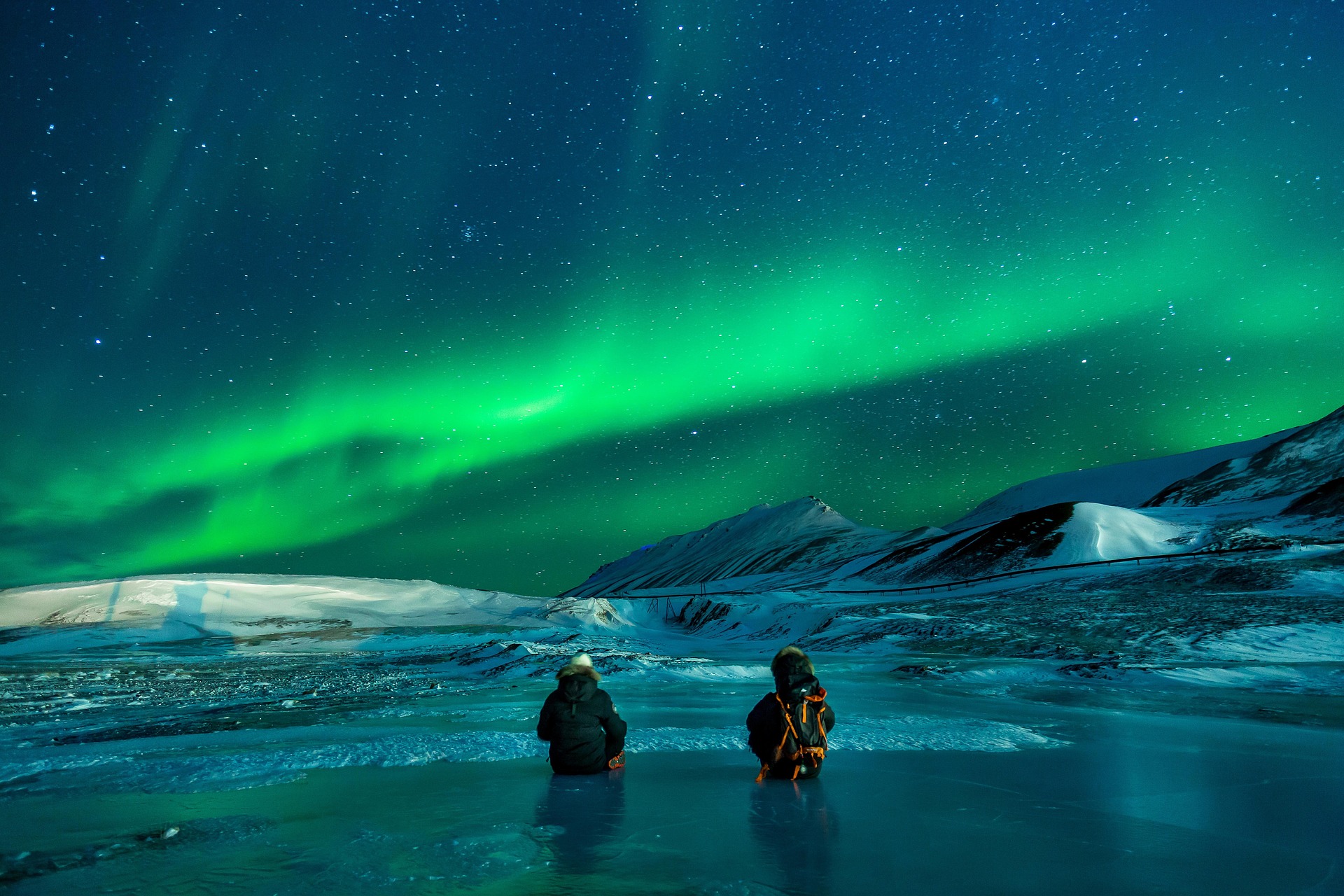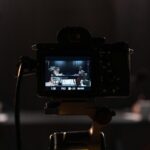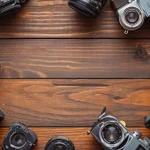
I remember standing on a cold mountain ridge, waiting for the perfect moment to capture the starry sky. Night photography challenged me in ways I never expected. Choosing the best camera for night photography isn’t just about technical specs. It’s about capturing the magic of darkness.
Photographers seeking top-notch night photography gear know standard cameras don’t cut it when light fades. The right equipment turns tough low-light scenes into stunning visual stories. Modern cameras have changed how we capture amazing nightscapes, astronomical events, and cityscapes at night.
Night photography needs special gear that can handle extreme light limits. Sensors, lens abilities, and how well they handle low light are key when picking the perfect camera. Both pros and hobbyists look for cameras that can show hidden details in almost complete darkness.
Key Takeaways
- Night photography requires specialized camera equipment
- Sensor quality directly impacts low-light performance
- Advanced cameras can capture details invisible to the naked eye
- Proper gear makes dramatic nighttime photography possible
- Understanding camera capabilities is key for success
Why Night Photography Requires Specialized Cameras
Capturing stunning night photographs needs more than just any camera. As a professional photographer, I’ve found that picking the best DSLR for low light photography is key. It requires knowing the technical details that make some cameras stand out in dark conditions.
Night photography comes with its own set of challenges. Standard cameras often struggle to handle the darkness. They need special equipment to take clear, detailed photos without noise or blur.
Understanding Low Light Conditions
Low light cameras are different from those used during the day. They have advanced features for capturing images in very little light:
- Enhanced light sensitivity
- Advanced noise reduction algorithms
- Superior electronic processing
Importance of Sensor Size
Sensor size is key for low light performance. Full-frame sensors are better because they capture more light. Their larger size lets more photons hit each pixel, making night images clearer and brighter.
Lens Speed and Aperture Considerations
When choosing the best DSLR for low light, lens characteristics matter. Wide aperture lenses (like f/1.4 to f/2.8) let in more light. This greatly improves the quality of nighttime photos.
Understanding these technical details is essential for picking the right camera. It’s what makes night photography truly remarkable.
Top Picks for Night Photography Cameras
Choosing the right night vision camera can change how you take photos in the dark. Professional photographers know how important it is to pick cameras that do well in low light and with stars.

I’ve tested and researched the best cameras for night shots. My top picks are three full-frame mirrorless cameras that shine in low light.
Canon EOS R6 Mark II: Low-Light Master
The Canon EOS R6 Mark II is a top choice for night photography. It has a powerful sensor that works great in the dark. It has:
- High-resolution 24.2MP full-frame sensor
- Impressive ISO range up to 102,400
- Enhanced autofocus system with low-light tracking
- In-body image stabilization for crisp night shots
Nikon Z6 II: Stellar Night Performer
Nikon’s Z6 II is a strong tool for capturing stars at night. Its design and tech make it a top pick for night photography.
- 24.5MP full-frame BSI sensor
- Dual image processors for improved low-light performance
- Excellent dynamic range
- Robust weather-sealed construction
Sony A7 III: Versatile Night Photography Champion
The Sony A7 III is a favorite for night photography. Its advanced tech ensures great images in tough lighting.
- 24.2MP full-frame back-illuminated sensor
- Exceptional low-light sensitivity
- Advanced 693-point phase-detection autofocus
- 5-axis in-body image stabilization
These cameras are the best in night photography tech. They give photographers the tools to take amazing low-light and astrophotography shots.
Features to Look for in Night Photography Cameras
Choosing the right camera for night photography is key. Not all cameras are good at capturing stunning nighttime shots. Professional photographers look for specific features.
When looking for a camera for low light, some features are essential. They can greatly improve your nighttime photos.
High ISO Performance
ISO performance is critical for shooting in low light. Top cameras for night photography have:
- Clean images at ISO 3200-6400
- Less digital noise in dark places
- Advanced sensors for better light sensitivity
Image Stabilization Technologies
Stable shots are vital for night photography. Modern cameras use advanced stabilization to reduce blur:
| Stabilization Type | Effectiveness | Best Use |
|---|---|---|
| In-Body Image Stabilization (IBIS) | Excellent | Handheld night shots |
| Lens-Based Stabilization | Good | Telephoto night photography |
| Hybrid Stabilization | Superior | Complex low-light scenarios |
Manual Control Options
Professional photographers need precise control. Being able to adjust exposure, shutter speed, and aperture is essential for great night shots.
- Full manual mode for total control
- Customizable button setups
- Advanced exposure adjustments
Investing in the right equipment ensures stunning night photos. These features are a must for capturing the beauty of the night.
Advantages of Full-Frame Cameras for Night Shots
When looking for the best DSLR for low light photography, full-frame cameras stand out. They offer amazing capabilities for capturing images at night. Their unique features make them better than cameras with smaller sensors.

Full-frame sensors work great in low light. They have a bigger surface area, which helps them collect more light. This leads to several key benefits for night photographers:
- Enhanced light sensitivity
- Reduced digital noise
- Broader dynamic range
- Superior image quality
Improved Low Light Performance
In my experience, the best camera for low light always has a full-frame sensor. These sensors can capture a lot more light than smaller ones. This lets photographers take clear pictures in very dark places.
Better Dynamic Range
Full-frame cameras are great at showing details in both bright and dark areas. This means you can keep the fine details in nighttime scenes, from dark streets to bright spots.
Lens Compatibility
Another big plus is the wide range of lenses they can use. Full-frame cameras work well with many professional lenses. This lets photographers be more creative in low-light settings.
Best Lenses for Night Photography
Choosing the right lens can make your night photos amazing. You need special gear to capture clear, detailed images in the dark.
It’s key to know about lens types when picking night photography gear. Each lens has its own strengths for capturing stunning night scenes.
Fast Prime Lenses: Capturing Light Brilliance
Prime lenses with wide apertures are a big deal for night shooters. They let in lots of light, making your photos sharp even in dim light.
- Optimal aperture range: f/1.4 to f/2.8
- Superior low-light performance
- Enhanced depth of field
Wide-Angle Lenses: Expansive Night Scenes
Wide-angle lenses are great for big night views. They give you a wide view, perfect for shooting stars and cityscapes at night.
| Lens Type | Focal Length | Best Use |
|---|---|---|
| Ultra-Wide | 14-24mm | Star photography, landscape |
| Standard Wide | 24-35mm | City scenes, night cityscapes |
Image Stabilized Lenses: Reducing Camera Shake
Image stabilization is a must for night photography. These lenses help keep your photos sharp by smoothing out camera shake.
- Reduces blur in low-light conditions
- Enables slower shutter speeds
- Improves handheld shooting capabilities
Good night photography gear makes a big difference. Pick lenses that fit your style and what you want to capture.
Tips for Shooting in Low Light Conditions
Night photography is a challenge for those wanting to capture stunning scenes. It requires skill, practice, and the right techniques. These help create amazing images of stars and nighttime views.

For great night photos, you need to know a few key things. I’ll share important tips for taking amazing photos in low light.
Use of Tripods for Stability
A good tripod is key for capturing stars at night. It keeps your camera steady, preventing blurry photos. When picking a tripod, think about these:
- Weight and portability for outdoor shoots
- Maximum load capacity matching your camera’s weight
- Leg lock mechanisms for quick setup
- Head type compatible with your shooting style
Time Your Shots Strategically
Timing is everything in night photography. Plan your shoot for the best celestial conditions and least light pollution. Astronomical twilight is the best time for amazing nighttime shots.
Experiment with Exposure Settings
Knowing how to set exposure is vital for low light photography. Try different ISO, aperture, and shutter speed settings to get the look you want. Here’s a good starting point:
- ISO between 1600-3200
- Aperture around f/2.8 or wider
- Shutter speed between 10-30 seconds
By using these tips, you can turn your night photos into professional-quality shots. These will show the beauty of the dark.
Post-Processing for Night Photography
Capturing stunning night photos is just the start. The real magic happens in post-processing. Here, raw images turn into stunning visual stories. As a pro photographer, I know choosing the right gear is key. But mastering digital editing is just as important.
Essential Software Options
Choosing the right post-processing software is vital. It can take your night photography to the next level. Here are some top editing tools to check out:
- Adobe Lightroom: Industry-standard for photo editing
- Capture One: Professional-grade color management
- DxO PhotoLab: Exceptional noise reduction
- Skylum Luminar: AI-powered editing features
Tips for Enhancing Night Shots
When editing night photos, focus on these key techniques:
- Reduce digital noise with advanced tools
- Adjust white balance for natural colors
- Recover shadow details carefully
- Enhance contrast and clarity wisely
Common Mistakes to Avoid
Post-processing night photos needs care. Avoid over-editing to keep the natural mood. Always shoot in RAW for more editing options. Be careful with noise reduction to avoid losing details.
By mastering these editing techniques, you’ll take your night photography to new heights. You’ll make the most of your gear and camera.
User Experiences and Reviews of Night Photography Cameras
Night photography needs special gear to capture amazing shots in dim light. Photographers of all levels share their thoughts on the top DSLRs for low light. They give valuable feedback on how these cameras perform.
Photographers often point out certain cameras as the best for night shots. Their real-world experiences show details that specs can’t tell us.
Real User Testimonials
- Professional landscape photographers praise full-frame sensors for exceptional low-light performance
- Wildlife photographers recommend cameras with high ISO ranges
- Astrophotography enthusiasts value advanced noise reduction technologies
Professional Photographer Insights
Expert photographers stress the need for cameras that handle low light well. Sensor size and lens quality are key for great night shots.
| Camera Model | Low Light Performance | User Satisfaction |
|---|---|---|
| Canon EOS R6 Mark II | Excellent | 4.8/5 |
| Nikon Z6 II | Very Good | 4.7/5 |
| Sony A7 III | Outstanding | 4.9/5 |
Comparative Model Analysis
Choosing the best DSLR for low light photography depends on your needs. Each camera has its own strengths. They suit different styles and preferences.
Conclusion: Choosing the Best Camera for Your Night Photography Needs
Choosing the right camera for night photography is more than just picking the most expensive one. As someone who loves capturing low-light scenes, I’ve found that the best camera depends on your style and goals. It’s about finding the right balance for you.
Your ideal camera should match your creative vision and technical needs. Cameras like the Canon EOS R6 Mark II and Sony A7 III are great for low light. But, the best choice for you depends on your specific needs, whether you’re a pro or a hobbyist.
Start by thinking about your current skills and what you want to achieve. Choose a camera that meets your needs now and will grow with you. Remember, the best camera is just part of the equation. Your skills, understanding of light, and practice are key to great night photos.
The best camera is the one that feels right in your hands and inspires you. Take your time to try out different models, read reviews, and think about your budget. Your perfect camera is out there, waiting to help you capture amazing low-light moments.
FAQ
What makes a camera good for night photography?
A good camera for night shots needs a few key things. It should have a full-frame sensor for better low-light shots. It should also handle high ISOs well, up to 40,000 or more. Plus, it should have great image stabilization and capture clear images in the dark.
Which sensor size is best for night photography?
Full-frame sensors are the top choice for night photography. They let in more light and make less noise at high ISOs. They also have a wider dynamic range than smaller sensors, making night shots clearer and more detailed.
How important is lens choice for night photography?
Choosing the right lens is very important for night shots. Fast prime lenses with wide apertures are best. They let in more light. Wide-angle lenses are also great for capturing big night scenes and stars.
What ISO range should I look for in a night photography camera?
Look for a camera with a native ISO range of 6400-12800. It should also be able to go up to 40,000 or more. Cameras like the Sony A7 III and Canon EOS R6 Mark II are great for this.
Do I need a tripod for night photography?
Yes, a good tripod is a must for night photography. It keeps the camera steady for sharp shots. Choose a tripod that’s light but stable, with good vibration dampening.
What post-processing software is best for night photography?
Adobe Lightroom and Capture One are the best for editing night photos. They have tools for reducing noise, adjusting white balance, and bringing out details in shadows and highlights.
How do I reduce noise in night photographs?
To cut down on noise, use a camera with a big sensor and good ISO performance. Shoot in RAW, use the lowest ISO, and apply noise reduction in editing software. Cameras like the Nikon Z6 II have great built-in noise reduction.
What’s the best camera for astrophotography?
For astrophotography, choose a full-frame camera with great low-light performance. The Sony A7 III and Canon EOS R6 Mark II are excellent choices. They offer high sensitivity, low noise, and can capture detailed star-filled skies.
How important is image stabilization for night photography?
Image stabilization is very important for night shots, for handheld or slow shutter speeds. Look for cameras with in-body image stabilization (IBIS) for 5-6 stops of stabilization. This helps reduce camera shake in low light.
What aperture is best for night photography?
For night shots, use wide apertures like f/1.4 to f/2.8. They let in the most light, making images clear and bright. They also create beautiful bokeh effects.
Affiliate Disclosure
This website/blog/content contains affiliate links. This means if you click on one of these links and make a purchase, I may receive a small commission at no additional cost to you.
I only recommend products and services that I genuinely believe in and have personally used or thoroughly researched. While I do receive compensation for these recommendations, my opinions remain honest and unbiased.
The commissions earned help support this website and allow me to continue providing valuable content. I appreciate your support when you use these links, but you are never obligated to make purchases through them.
Please note that prices of products or services may vary, and I have no control over these prices or the availability of items. All recommendations are made based on my assessment at the time of posting.
Thank you for your understanding and support.



